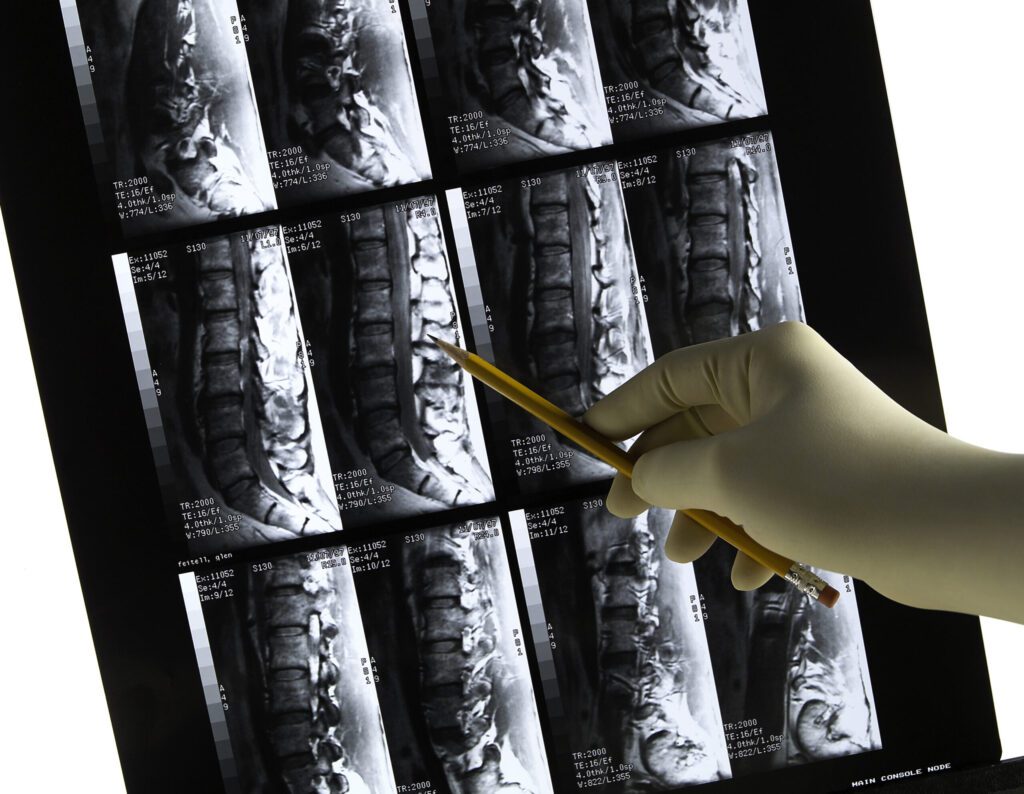Breaking a bone is scary enough for anyone, regardless of age. So imagine how frightening it can be to know that your bones aren’t nearly as strong as when you were younger! Unfortunately, that’s a reality for people who suffer from osteoporosis. The condition is often an underlying factor when seniors suffer broken bones. Take our quiz on osteoporosis and assess your risk of this dangerous disease.
1.) True or false? Osteoporosis is when bones become weak and brittle due to bone loss because the creation of new bone doesn’t keep up with the loss of old bone.
2.) Which of the bones below is NOT one of the most common places for an osteoporosis-related fracture to occur?
- Hip
- Wrist
- Femur
- Spine
3.) True or false? Typically, there are no symptoms in the early stages of bone loss with osteoporosis.
4.) Which of the following are symptoms of osteoporosis once the disease progresses and weakens bones?
- Back pain caused by a fractured or collapsed vertebra
- Loss of height over time
- A stooped posture
- A bone that breaks much more easily than expected
- All of the above
5.) True or false? The older you get, the greater your risk of osteoporosis.
6.) Along with age, what are other risk factors for developing osteoporosis?
- Sex. Women are much more likely to develop osteoporosis than men.
- Race. Those who are white or of Asian descent are at a greater risk of developing osteoporosis.
- Family history. Having a parent or sibling with osteoporosis increases your risk of developing osteoporosis.
- Body frame size. Both men and women with small body frames have a higher risk, most likely because they have a lower bone mass to draw from as they get older.
- All of the above
7.) Hormones can also affect your risk for developing osteoporosis in which of the following ways?
- Lowered sex hormone levels, such as low estrogen or low testosterone, tend to weaken bone.
- Too much thyroid hormone from an overactive thyroid can cause bone loss.
- Osteoporosis has been associated with overactive parathyroid and adrenal glands.
- All of the above
8.) Which of the following is a dietary factor that does NOT increase your risk of developing osteoporosis?
- Eating a diet high in protein
- A lifelong lack of calcium
- Having an eating disorder that severely restricts food intake or leads to being underweight
- Having gastrointestinal surgery as it limits the absorption of nutrients like calcium
9.) True or false? Long-term use of oral or injected corticosteroid medications, use of medications to combat conditions like seizures, gastric reflux, cancer, and transplant rejection, and having medical conditions like Celiac disease, IBS, kidney or liver disease, cancer, and rheumatoid arthritis can all increase your risk of developing osteoporosis.
10.) Which lifestyle choice does NOT contribute to your risk of developing osteoporosis?
- Having a sedentary lifestyle
- Having a physically demanding job
- Regular consumption of more than two alcoholic drinks per day
- Using tobacco
11.) Which of the following are options for reducing your risk of developing osteoporosis?
- Getting enough calcium: 1,000 milligrams a day and then 1,200 milligrams a day for women older than 50 and men older than 70.
- Getting enough Vitamin D: at least 600 international units (IU) a day and then 800 IU after age 70.
- Getting daily exercise, especially when combining strength training, weight-bearing, and balance exercises
- All of the above
compiled by ERIKA ALDRICH / information provided by THE MAYO CLINIC
ANSWERS
- True. Osteoporosis is when bones become weak and brittle.
- C. Femur. The hip, wrist, and spine are the most common areas where bone fractures from osteoporosis occur.
- True. There are usually no symptoms of the early bone loss of osteoporosis.
- E. All of the above
- True. As we age, our risk of developing osteoporosis increases.
- E. All of the above
- D. All of the above
- A. Eating a diet high in protein does NOT increase your risk of osteoporosis, but the others do.
- True
- B. Having a physically demanding job does NOT increase your risk of osteoporosis, but the others do.
- D. All of the above
